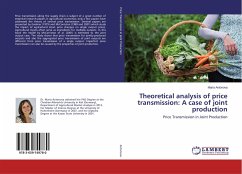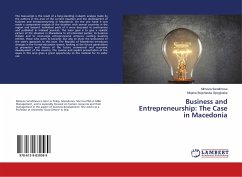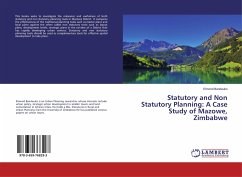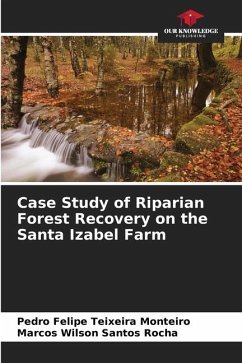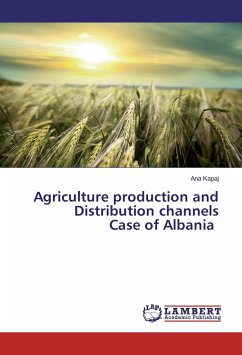
Agriculture production and Distribution channels Case of Albania
Versandkostenfrei!
Versandfertig in 6-10 Tagen
27,99 €
inkl. MwSt.

PAYBACK Punkte
14 °P sammeln!
In the 20 years since the fall of communism, the agricultural sectors of the Central Eastern Europe countries have done quite well overall. Market oriented reform is complete nearly everywhere, and EU accession has brought significant benefits to the farmers of the new member states. In general, the CEE farmers have fared considerably better than their counterparts, where governments have been far slower to embrace market reforms. The early years of the transition were marked by severe economic recession, declining agricultural output, particularly in the livestock sectors and, in some countri...
In the 20 years since the fall of communism, the agricultural sectors of the Central Eastern Europe countries have done quite well overall. Market oriented reform is complete nearly everywhere, and EU accession has brought significant benefits to the farmers of the new member states. In general, the CEE farmers have fared considerably better than their counterparts, where governments have been far slower to embrace market reforms. The early years of the transition were marked by severe economic recession, declining agricultural output, particularly in the livestock sectors and, in some countries, by a rise in subsistence farming. By the end of the 1990s, however, many of the countries were on the road to recovery-output began to recover, incomes were rising, and foreign investment was flowing in. Some of the enduring weaknesses in Albanian agriculture are; Fragmented farm structure, Weak land markets, Poor infrastructure, Lack of market information, Lack of quality and food safety standards, Weak tradition of farm associations and cooperatives, etc.




